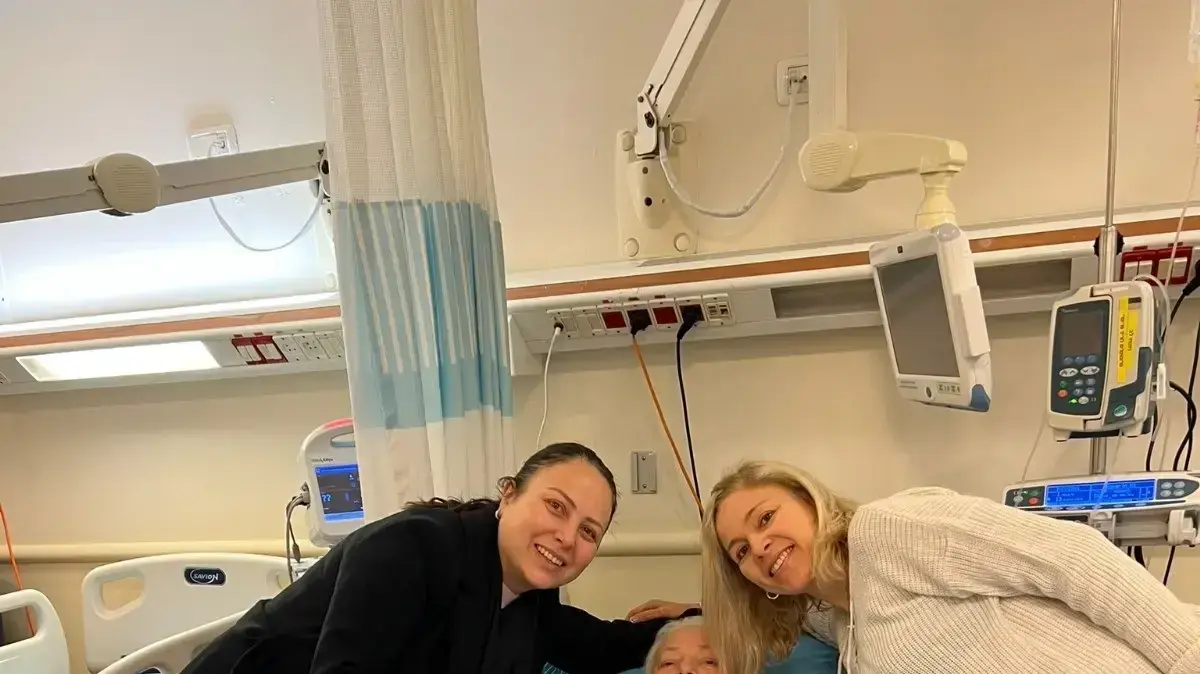In his previous life, the 46-year-old was healthy and active. The employee of a construction company swallowed no medication, not even painkillers or herbal products. He only drank alcohol from time to time in company. Then everything changes, as doctors around Fahad Malik from the Richmond University Medical Center in New York report in the journal "BMJ Open Gastroenterology".
January 2011: The transformation begins a week after the man took antibiotics due to a thumb injury. Suddenly he develops memory problems. His mood fluctuates, he goes through depressive phases. He often has the feeling that his thoughts are foggy, sometimes he also behaves aggressively. All of this was alien to him before, now the problems accompany him month after month. In the end, it takes six years for doctors to free him.
January 2014: After three years, he is looking for help for the first time. His family doctor transfers him to a psychiatrist who prescribes an antidepressant and a strong sedative. The problems recede but do not go away entirely.
March 2014: The first low blow follows: One morning the man is arrested. The suspicion: he drove the car while drunk. When he refuses to take an alcohol test, the police send him to the hospital. His blood contains two parts per thousand alcohol. The man repeatedly asserts that he has not drunk in years. Neither doctors nor police officers believe him.
March 2015: His aunt is the first to suspect. By chance, she learns about a person with whom an unusually large number of yeasts had settled in the intestine - and who produced alcohol. As a result, the person concerned was drunk without having drunk. Doctors speak of the Auto-Brewery syndrome. Could your nephew suffer as well? The aunt persuades him to drive hundreds of miles to Ohio doctors who helped the other patient.
May 2015: When the man in Ohio gave a stool sample, he had been suffering from mood swings for four years. In fact, the doctors discovered two yeasts in the sample: Saccharomyces cervisiae, better known as brewer's yeast, and the closely related Saccharomyces Boulardii. Both can ferment carbohydrates from food to alcohol. Does the man really have a brewery in his gut?
Carbohydrates, yeast and alcohol
Carbohydrates consist of sugar molecules that are often strung together in long chains. They are the main constituent of cereals and thus of bread and pasta, but are also found in large quantities in potatoes, bananas, beans and legumes. Like humans, yeasts also gain energy from carbohydrates, albeit with the help of alcoholic fermentation. Then ethanol is formed. Humans make targeted use of this process when brewing beer.
September 2015: Doctors serve up a meal full of carbohydrates to their patient, then they monitor his alcohol level. After eight hours the value rises to around 0.5 per mille - the aunt was right. The man takes antifungal agents for some time and is also supposed to strictly avoid carbohydrates. His complaints returned a few weeks later.
February 2017: The next low point: In a frenzy, the man falls on his head, suffering from bleeding. He has to go to the hospital for ten days. During this time, its level temporarily reached almost four per thousand. Again, nobody believes that he didn't drink anything.
September 2017: After unsuccessful appointments with internists, psychiatrists, neurologists and gastroenterologists, the man contacts a self-help group on the Internet. He also travels to New York to see Richmond University Medical Center doctors who deal with Auto-Brewery Syndrome.
September 2017: A new edition of the first treatment follows. The New York doctors send samples from the intestine to the laboratory, where two yeasts grow, not this time the brewer's yeast, but Candida Albicans and Candida Parapsilosis. Both can produce alcohol. Again, a week-long treatment with anti-fungal agents and a strict carbohydrate-free diet begins - also to starve the mushrooms.
more on the subject
October 2017: The complaints decrease - but then the relapse comes: Without consulting his doctors, the man eats pizza and drinks lemonade, both carbohydrate bombs. His body reacts violently, he has to go to the hospital.
January 2018: More weeks with an antifungal and a strict diet follow. However, the doctors don't trust the whole thing yet. For safety, they prescribe the man an additional six weeks of anti-fungal medication, this time intravenously.
February 2018: At the end of the therapy, the doctors take a second sample from the intestine. This time, yeast is no longer growing. Even after 200 grams of glucose, the patient's alcohol level remains at zero, the mushrooms are sold.
May 2019: After more than six years, the man has returned to his old lifestyle, including pizza, soda and other meals full of carbohydrates. There has been no relapse in the year and a half since the end of therapy.
Doctors cannot say for sure how the man caught the yeast. However, it is likely that taking antibiotics before the symptoms started had a major impact. The agents not only kill pathogens, but can also decimate helpful intestinal bacteria. Then there is a risk that yeast or other harmful microbes spread. As a rule, however, the intestine recovers on its own in healthy people.
Auto-Brewery syndrome is also very rare - although many people probably have a tiny brewery within them. In a study of 1,400 people in Saudi Arabia, the researchers discovered traces of alcohol in many of them, even though they did not drink. However, the quantities were so small that they were completely without consequences.












